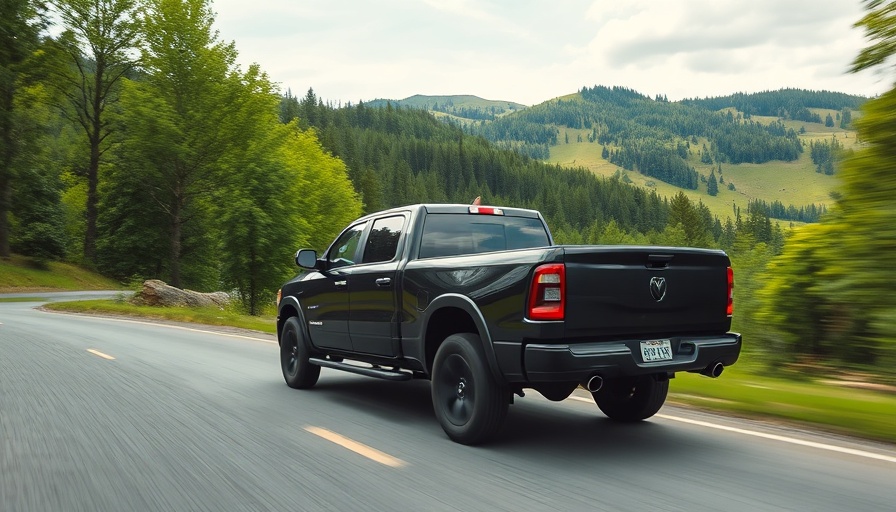
Michigan State Police Embrace Electric Vehicles: A Bold Step Forward
In a groundbreaking move towards sustainability, the Michigan State Police (MSP) has officially inducted its first electric patrol vehicle into its fleet. The 2024 Ford Mustang Mach-E, specially modified for police duties, marks a significant milestone not just for the department but for the entire state. Situated in Lansing, this vehicle will empower properties security officers tasked with overseeing state-owned and leased facilities.
Understanding the Shift to Electric Patrol Vehicles
As more law enforcement agencies consider a pivot to electric vehicles (EVs), MSP's choice reflects a larger trend seen across the nation. With the automotive industry increasingly shifting toward green technology, MSP joins the ranks of police departments that are actively exploring the benefits of electrification. The focus on reducing carbon footprints in policing is rapidly gaining traction, as departments recognize the long-term operational cost savings and reduced environmental impact of electric patrol cars.
Comparative Insights: Who Else is Leading the Charge?
The MSP may have been a bit behind the curve, but many states have already integrated EVs into their law enforcement routines. Notably, the New York Police Department (NYPD) has taken early strides in incorporating the Mustang Mach-E and similarly, other departments have found innovative ways to utilize electric vehicles effectively on the roads. California stands out with police departments boasting all-electric fleets, using adapted Tesla Model 3s and Model Ys, highlighting varying degrees of receptiveness to this ecological shift.
Current Limitations and Future Prospects for Electric Patrol Vehicles
Despite the encouraging steps toward electrification, the current market still offers limited options for police vehicles that meet the specific demands of law enforcement operations. Major manufacturers like Ford and Stellantis are responding to this gap. Ford's variations, including a police-edition F-150 Lightning, show a commitment to dedicated utility vehicles for police work. Meanwhile, anxieties linger regarding the suitability of forthcoming models like the Tesla Cybertruck as police vehicles, necessitating continual adaptations to ensure safety and utility in law enforcement.
Impact of Electric Vehicles on Police Operations
Fleets shifting towards electrification offer various benefits such as lower maintenance costs and reduced reliance on traditional gasoline engines, which can ultimately lead to significant savings in annual operating budgets. Furthermore, electric patrol vehicles generate less noise and emissions, creating a more community-friendly approach while performing everyday policing duties.
Final Thoughts
The introduction of the first electric patrol vehicle by the Michigan State Police not only reflects state leadership in EV sales but also heralds an industry-wide shift. For dealer principals and finance managers, staying informed on such advancements is vital as the automotive landscape rapidly evolves. An understanding of these trends will be crucial in optimizing retail sales and financing operations in the coming years.
 Add Row
Add Row  Add
Add 




Write A Comment